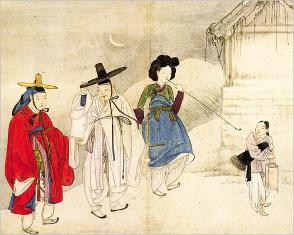

Hong became interested in Korean and its associated culture after watching a movie named Old Boy several years ago. Even though it was discovered at a later stage that its premise was actually based on Japanese Manga, the Korean director still did a great job considering the plots within the movie turned out to be much more interesting and heart touching. Later Hong became interested in ancient Korean history and discovered that Chinese characters used to be heavily used in the Korean writing system. So is she interested in traditional costume (Hanbok). In is a fact that some Chinese scholars who speciality is dance, considered traditional Korean dance to be one of the most difficult dances to learn and master
You might be a lover of Korean Pop culture, including Korean Pop Dance (K-Pop), Korean drama and movies, Korean beauty and fashion products, or delicious foods et al. If you want to boost your Korean language skills, it has never been too late to start!
In Hong's view Korean pronunciation is the most difficult among the three South East Asian languages, reason being, the sounds of some Hangul (Korean alphabet) do not exist in Chinese or English at all. But after several months self-study she got used to it and fell in love with it as its pronunciation is soft and sounds beautiful. Korean grammar to a certain degree, is similar to Japanese grammar, but different from Mandarin. So if you already know some Japanese, it would make it easier to learn Korean grammar. Korean writing is much easier than Chinese and Japanese because Chinese characters are not used in its writing any more. Like English writing, there exists a space between a word and the other. This is one of the most challenging points to master as one often gets confused where to leave a space. It is because it does not always follow the rules.
ALCL provides you with interesting insights into Korean language through embedding its cultural learning into the process of learning that language, such as learning Korean via learning K-pop songs and danceet al.
© Copyright Korean Language